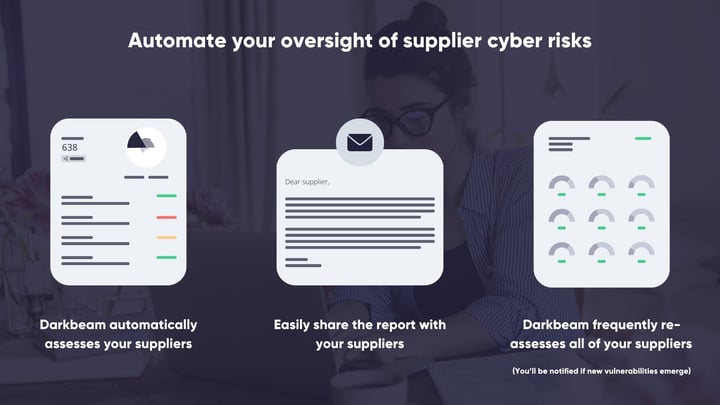Disruptions to organisations caused by supply chain cyber-attacks are high and increasing rapidly. Are your suppliers inadvertently putting you at risk?
A recent report by The Business Continuity Institute (BCI) laid out the importance of supply chain resilience and the challenges organisations face as they try to keep their businesses running.
In 2020 and 2021, there was one obvious major disruptor to smoothly running supply chains – COVID-19. More than 83% of respondents to the BCI survey cited human illness as a reason for disruption over the previous 12 months. Other prevalent reasons for supply chain disruption were transport problems, adverse weather and insolvency. However, one-third of respondents reported that they had experienced disruption caused by cyber-attacks and data breaches.
In this article, we’ll look in more depth at the BCI report and examine how cyber-attacks may be more common than you think. Then, we’ll look at what you can do about it.
An unprecedented year
Of course, 2020 was a year like no other – one we’ll hopefully never have to experience again. COVID-19 totally changed the way we work, including how we manage our supply chains.
More organisations than ever (55.6%) now use technology to help analyse and report on disruptions to the supply chain. The number of companies using technology to assist in supply chain mapping leapt from 22.6% in 2019 to 40.5% in 2020. Most companies told the BCI that COVID was the primary reason behind these new investments.
But, while COVID was the most significant disruptor to supply chains in 2020, it did not mean that other disrupting factors vanished, including cyber-attacks.
Increasing cyber attack numbers
33.3% of organisations surveyed cited supply chain disruptions caused by cyber attacks or data breaches in 2020 – compared to 26.1% in 2019.
The pandemic was one of the reasons behind this increase, as cyber criminals used topics related to COVID in phishing attacks. For example, sending fraudulent texts asking people to register for the vaccine, which led to a trick website. HMRC data shows that in May 2020, phishing attacks were up 337% from March, when the Coronavirus lockdown started, while Checkpoint Research found that in November 2020, there were 1062 potentially malicious domains registered that related to the vaccination programme.
Repercussions for your supply chain
If you’ve suffered from supply chain disruption due to cyber attacks, you’re not alone. If cyber security issues have not hit you, then you are either managing risk in your supply chain very well, or you have been lucky.
It only takes one of the companies in your supply chain to be impacted by a cyber attack for it to not only disrupt your business, but potentially infect your systems too. Cyber criminal groups are well-known for using smaller companies lower down the supply chain to snare the bigger beasts at the top, causing damage to everyone between them as they do it.
The number of cyber attacks we’ve seen during the pandemic is unlikely to reduce, even as we emerge back into the new normal. 52.9% of respondents to the BCI survey believe cyber attacks will be a concern in 2021, with 54.9 citing it as a concern for the next five years.
Fortunately, there’s an answer.
The Darkbeam solution
When you let Darkbeam handle your digital risk management, we won’t just monitor your site, but your entire ecosystem. Darkbeam will:
- Risk assess your whole supply chain to identify vulnerabilities, historical breaches and more
- Bring you real-time alerts if there are any changes to your risk profile
- Produce a detailed security breakdown to help you get to the bottom of any issues
Darkbeam is available as a SaaS platform or an API that integrates with your existing systems.




